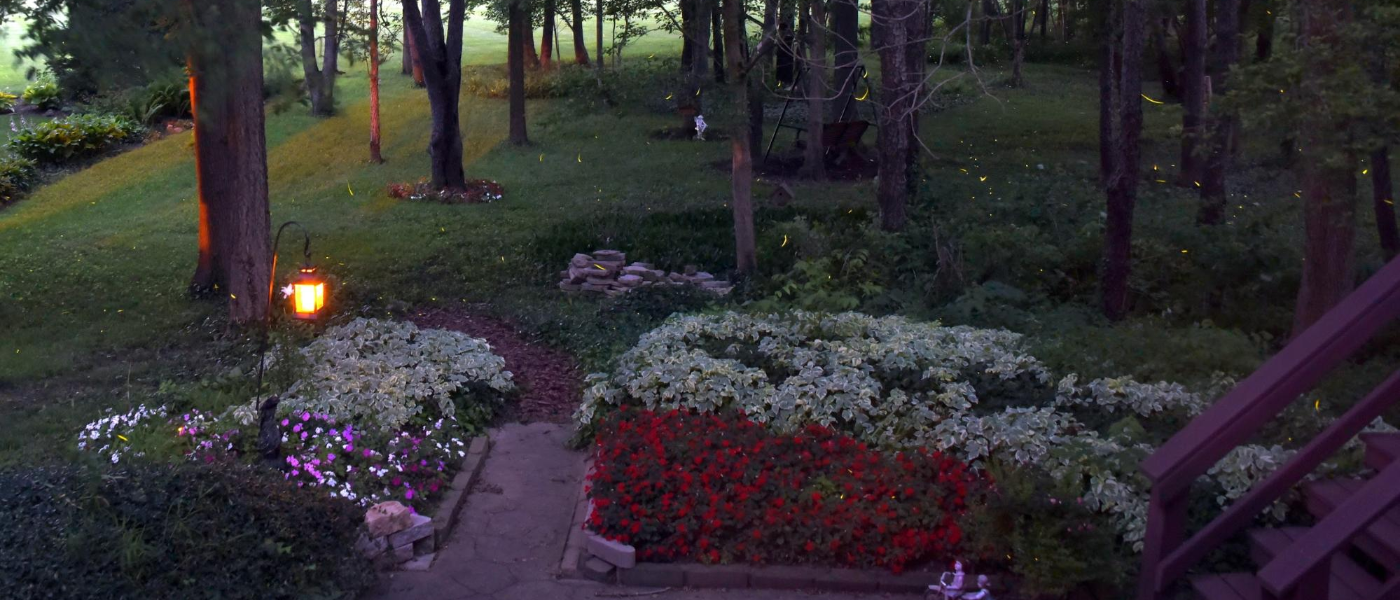How to Keep the Mosquito Population Down in Your Yard

Every street, avenue and cul-de-sac has them—those pesky neighbors who don’t show up until the sun goes down, then bother you all night long with their incessant noise.
The worst, though, is when they start biting.
Unfortunately, mosquitoes can move in without any notice, and once they’ve established residence, even the homeowners association can’t get rid of these irritating “neighbors.”
But that doesn’t mean you have to put up with them on your property. When mosquitoes start crashing those relaxing summertime evenings on the patio, it’s time to start eviction proceedings. For most people, that begins with a trip to the local big-box store for supplies.
DIY Defense Against Disease
Mosquitoes, and the red, itchy bites they leave as calling cards, present far more of a problem than simply being a nuisance. In fact, the Centers for Disease Control and Prevention lists ten different diseases commonly spread by mosquitoes, including malaria, dengue fever, West Nile and Zika.
And it’s not just humans who are at risk. Canine heartworm, a parasitic disease affecting dogs, is yet another deadly disease spread by mosquito bites.
For most people, their first line of defense against mosquitoes comes in the form of insect repellent. Most insect repellents contain either DEET or picaridin (and those that don’t have been shown to be effectively useless in real-world testing). Both DEET and picaridin have been demonstrated to be about equally effective in keeping bugs at bay, so the choice more or less comes down to personal preference. That said, most folks these days are choosing picaridin because, unlike DEET; it’s odorless, non-greasy, and does not dissolve plastics.
DEET is a little better at fending off ticks, which may give it a slight edge here in New England where Lyme disease is a serious concern. Picaridin, however, has a moderate advantage when it comes to repelling just about everything else, including mosquitoes. Picaridin is not without its detractors, however. As a relatively new product, it hasn’t been subject to the same breadth and depth of safety testing that DEET has gone through. Some say that the jury’s still out as to its long-term effects.
Another popular purchase every mosquito season is citronella candles; however, a recent study has shown that, beyond creating a nice ambiance, they’re practically useless. Ditto “herbal bracelets” that use synthetic essential oils and extracts, as well as “sonic repellents” that employ high-pitched frequencies to purportedly drive away pests.
Finally, many consumers buy into the marketing claims of various mosquito “traps.” These include everything from old-school blue-light zappers to modern marvels of engineering, such as some carbon-dioxide-based contraptions.
Even if and when they work as advertised, the American Mosquito Control Association casts a lot of doubt on how well such devices can effectively control a local mosquito population, especially when the products claim “acres” worth of coverage; this is because they ultimately work by attracting bugs onto your property at a faster rate than they can be killed.
In reality, the first, best and most-effective line of defense against mosquitoes is to simply make your yard less attractive to them.
Make Your Yard Inhospitable to Skeeters
First, cleaning up yard debris and keeping your grass clipped short will go a long way toward minimizing mosquito problems.
Second, mosquitoes love moisture and humidity; standing water is practically a labor and delivery ward to them. Eliminating puddles, with either proper drainage or by leveling areas of the yard where water tends to pool, will severely inhibit their ability to reproduce on your turf.
If your property has spots where water insists on hanging around, periodically sprinkling coffee grounds on the area will make it a less appealing breeding zone, and it will also prevent mosquito larvae from maturing into adults.
Planting mosquito-repelling plants such as lavender, rosemary, geraniums or catnip can also help keep mosquito populations under control—and beautify your yard, to boot.
The Case for Professional Help
Finally, when all else fails and your mosquito problem presents a real danger, it may be time to bring in the professionals.
Regardless of whether your mosquito “neighbors” represent a small, quiet crew or a big, booming frat house, it’s important to protect the health and safety of your own family first. By doing something about it now, you won’t have to wait until the ground frosts over in the fall to enjoy your backyard to the fullest.
Treat yourself to a guaranteed 90% mosquito population knockdown by contacting our team for your free quote on professional mosquito control.



